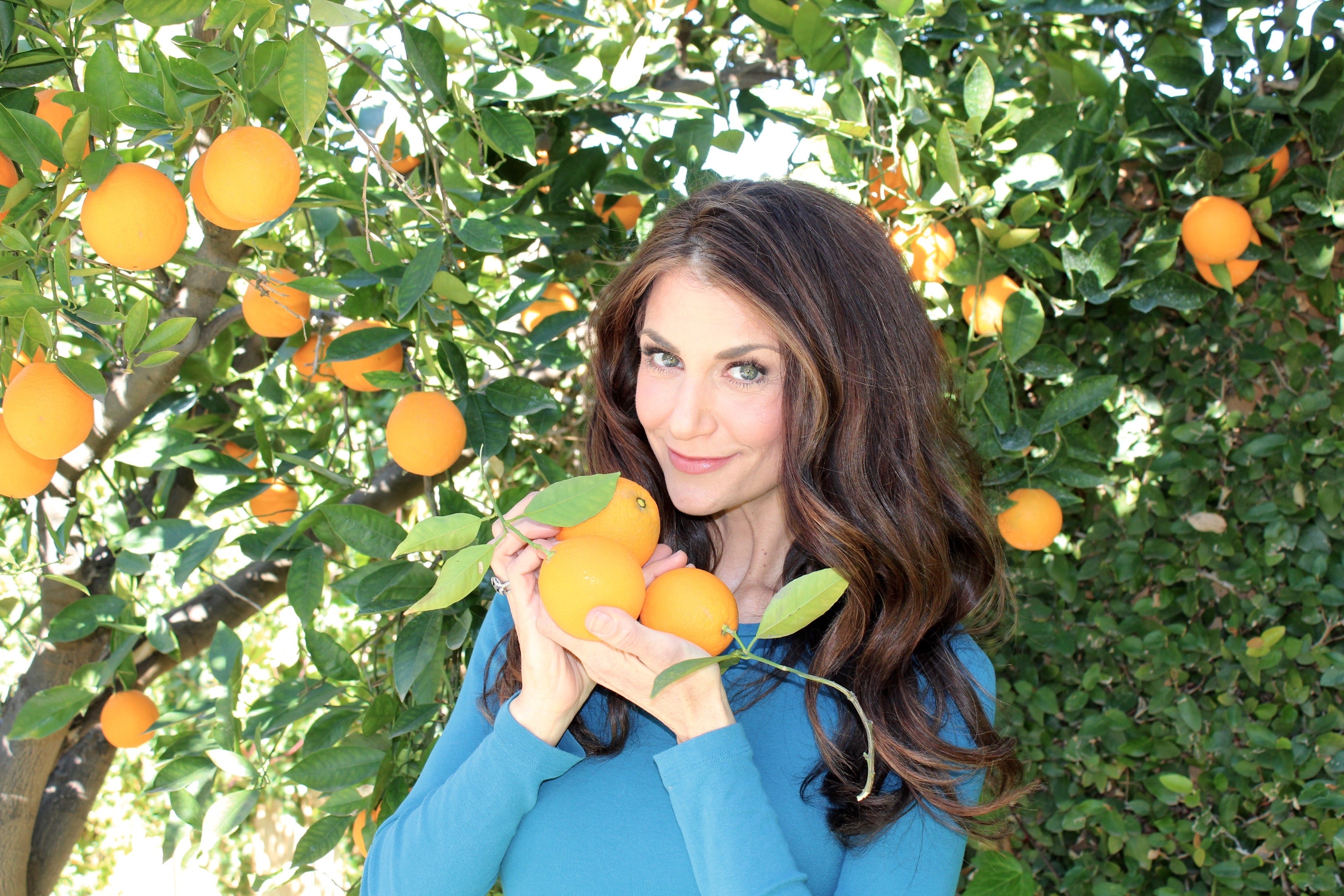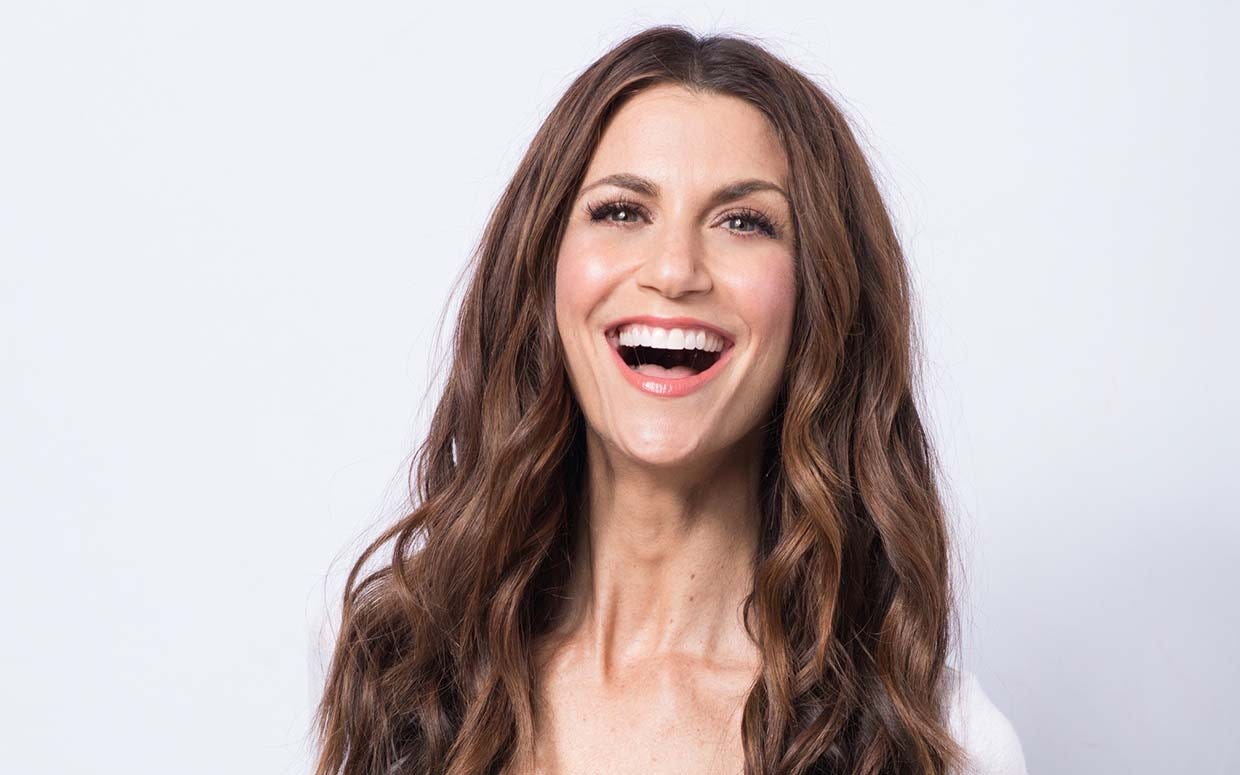5 Reasons To Be Hopeful During this Corona Crisis

It’s about the little things. Appreciating that you have a home to stay safe. Or the ability to cook delicious meals you never got around to do before this crisis. Focusing on the small things that make this time at home special, especially if you are self-isolating with family or good friends. Most of the time, we are all running around like crazy. No time for all the non-work commitments we’d like to accomplish. Now with more time at home, we can finally clean out the garage or take long bike rides with the kids. Catch up on the phone with a childhood friend. All things to be grateful for in a time when we may forget to focus on the good things we have going!
![]() by Dr. Ely Weinschneider, Psy.D
by Dr. Ely Weinschneider, Psy.D
As a part of my series about the things we can do to remain hopeful and support each other during anxious times, I had the pleasure of interviewing Emmy Award-winning TV Host and journalist Samantha Harris.
Samantha Harris may best be known for hosting eight seasons of the hit TV show Dancing with the Stars and her many years on Entertainment Tonight. She is also a bestselling author, Certified Health Coach, breast cancer survivor and national ambassador for the charity Susan G. Komen.
Her book (Your Healthiest Healthy) and profound health coaching expertise have spawned ongoing Your Healthiest Healthy Wellness Retreats and Webinars.
Thank you so much for doing this with us! Our readers would love to “get to know you” a bit better. Can you share with us the backstory about what brought you to your specific career path?
Growing up in a family who loved to dance sparked a love of fitness, but after graduating from journalism school at Northwestern University and heading to Hollywood to “make it big”, the lack of weekly dance classes at school left me without the structure to keep up my best health. In turn, that deficit set a fire in me to uncover ways to stay fit. I began working out at gyms that eventually hired me to teach the classes I took regularly. Oddly, however, it wasn’t until well into my career in entertainment as a TV host and correspondent that I chose to pursue my certification as a fitness trainer and, eventually, as a certified health coach. Then a turning point. Being blindsided by a breast cancer diagnosis at age 40, as a mom to two young daughters, inspired a quest to find my best health yet. Having no hereditary link to my cancer confounded me. Surprisingly, only 5–10% of breast cancers are actually genetic. Leaning into my journalism training, research became my best friend. Yet in my pursuit for answers, a fully vetted guide to best health seemed not to exist. So, I wrote a comprehensive action plan to guide others, with small manageable steps, to rid their bodies of the toxins that lurk in, on and around it, which commonly precipitate chronic diseases. The book, Your Healthiest Healthy, does just that. It’s one of the things in my career that makes me the proudest.
Is there a particular book that made a significant impact on you? Can you share a story or explain why it resonated with you so much?
Throughout my research, a multitude of books strongly impacted me and influenced the changes implemented in my own life, and that of my family, to achieve this new level of our healthiest selves. The China Study possibly left the biggest impression. Through its research, it unnervingly yet directly correlates that increased consumption of animal protein increases instances of cancer. Beyond that, further research revealed that the federal government hasn’t updated our personal care products’ regulations since 1938. Shocking! Other countries, such as the European Union, ban more than thirteen-hundred ingredients from cosmetics that are known or suspected to cause cancer, genetic mutation, reproductive harm or birth defects. The United States bans a mere eleven. Just eleven. We, as consumers, need to take control of our own health in ways many of us may not have realized.
Ok, thank you for all that. Now let’s move to the main focus of our interview. Many people have become anxious about the dramatic jolts of the news cycle. The fears related to the coronavirus pandemic have heightened a sense of uncertainty, fear, and loneliness. From your perspective, can you help our readers to see the “Light at the End of the Tunnel”? Can you share your “5 Reasons To Be Hopeful During this Corona Crisis”? If you can, please share a story or example for each.
First, we will get through this. There are so many reasons to be hopeful and to find the light in what seems to be tremendous darkness. Here are my top five:
Growth as a Community.
Many of us don’t even know our neighbors. Of those we know, we likely don’t know them all-too-well. This pandemic, where we are finding strength from those who live nearest, joins us as a community in ways that before seemed absent. More friendly waves from passers-by as we walk our streets around us. More conversations from afar as we wait in line to gain access to the grocery store. More warm smiles from those driving past as we bike around the neighborhood. These are wonderful things!
Togetherness.
For those of us who have our children or aging parents living with us during this time of semi-quarantine, we are gaining more quality time together than we likely have had in the past year or more. Family dinners are full of robust conversation. Creative games that we haven’t played since childhood. Sharing talents to pass the time. A true bonus, now bringing families together.
Discovering the Blessing of Working from Home.
Many of us have been forced to work from home. Something that often brought push-back either from ourselves or from our employer. Now, the realization that working home can lead to increased productivity while also giving way to work-life balance could bring about change within the workforce and corporate policies that mutually benefit.
Enjoyment of New Activities.
Whether you have re-discovered a love for long walks or a morning at-home workout, long-lost creativity that hasn’t been tapped in years or new games taught to you by your children — this at-home, temporary lifestyle inspires innovation, whetting creative juices, and newfound hobbies.
The Coming Together of the World.
Our world hasn’t had a shared focus. One would think that global warming would have united us all. It sadly hasn’t. A potentially unstoppable virus? Done. The best scientific minds on the planet, major corporations and governments across the globe finally must unite for the common good and safety of all life on this sphere spinning around the sun. Perhaps the “good” in this will be a common thread to connect us all, in an empowering way that never before has, to save life as we know it.

From your experience or research what are five steps that each of us can take to effectively offer support to those around us who are feeling anxious? Can you explain?
Covid-19 has stirred up so much anxiety and fearfulness among parents and children alike. The idea of being sequestered for weeks can be suffocating. How do we deal with this and create more calm in our lives, along with helping those we love cope? I like to focus on a few key strategies that you can also share with those dearest to you to get through this together:
Control what you can control.
Remember there are only so many things within our power. It’s best to focus our energy on the things that are truly within our control. Namely: Our attitude and our effort. With a simple mind-shift, we can empower ourselves during a time that seems to be spiraling out of whack. Take charge of our emotions to stay positive (more on that later), procure the supplies needed to create a comfortable living environment, and construct a game-plan for how to keep busy while staying safe at home. These efforts will generate calm and capability.
Focus on small moments daily.
If you needed to pack up your home to move, you wouldn’t take on the whole house at once. That would overwhelm anyone. Instead, the approach of one room at a time makes the most sense. The same is true here. Concentrate on one small moment at a time. Wake up and tackle one task to kick-off your day. Then another. Then another. Easy, small steps to get you through today and beyond.
Breathe right, breathe slowly, deep breathe often.
Diaphragmatic breathing activates the parasympathetic nervous system to heal and calm us. This type of deep abdominal breathing also helps to decrease inflammation in the body. During times of stress or anxiety, slow belly-filling breaths (picture your tummy inflating like a balloon) act as a saving grace by allowing us to connect to what’s happening in the moment and relax our jitters.
Engage to create community.
During “normal” times without self-isolation, we are often encouraged to put down our devices to engage in more human-to-human contact. When that’s not possible, as it isn’t currently, tuning into our tech gives great gains. Group video-chat get-togethers can fill the void for those missed happy-hour hangouts with friends after work. FaceTime with far-away family fills in for a weekend special time. Swapping Sunday brunch for Skype sessions can bring happiness and eliminate possible loneliness.
Grasp gratefulness.
It’s about the little things. Appreciating that you have a home to stay safe. Or the ability to cook delicious meals you never got around to do before this crisis. Focusing on the small things that make this time at home special, especially if you are self-isolating with family or good friends. Most of the time, we are all running around like crazy. No time for all the non-work commitments we’d like to accomplish. Now with more time at home, we can finally clean out the garage or take long bike rides with the kids. Catch up on the phone with a childhood friend. All things to be grateful for in a time when we may forget to focus on the good things we have going!
BONUS TIP: Practice Positive Self-Talk
To practice positive self-talk, we need to literally have a conversation with ourselves (or talk through these points with the person you are trying to support). Talk through all the bonus benefits or silver-linings of this situation. For example, “This is a challenging time, but I am lucky to have such a supportive family and food we can afford to put on our table. I am grateful for the time at home to give myself much-needed self-care.”
Another tip to help others during this time? Help them mitigate negative thoughts. To stop the negativity spiral, we need to throw a wrench in that anxiety engine. If we can slow ourselves down and recognize our anxiety, we often can stop the downward spiral before it begins. So how to help your loved one (and yourself in the meantime)?
Start small
- Go for a walk either alone or, better yet, with someone you are living with during this time of social distancing. Some people are still taking walks 6-feet apart with a neighbor, but that can bring its own health concerns. Best to stick with walking with those who are self-isolating with you. Or this can be the perfect time to schedule a “walk and talk” phone call with a best friend or relative whom you otherwise can’t hang out with during this time.
- Do meditative yoga
- Use self-talk (as mentioned above) to change your thought patterns.
The brain can learn and be retrained to loop in a less reactive way.
a) Acknowledge the feeling and, if present, the negative self-talk.
b) Shift the mindset.
• Focus on the good things — small or large.
• Find the humor.
• Ask yourself what you can learn from this experience.
c) Take positive action
• Get some fresh air! Go for a walk to clear your head and focus on being present.
- Reach out to someone you trust for positive support.
- Do something that brings you joy at the moment — listen to your favorite music, have a spontaneous dance party, drink a cup of your favorite tea, or whatever helps connect you with positivity.
See what works for you in different situations. The point is to practice lightening your mental load and — when necessary — faking it until you make it.
OTHER WAYS TO RE-TRAIN THE BRAIN:
· Stay present.
· Tackle your concerns when you need to address them but don’t spend your whole day worrying about something looming in the future.
· Remind yourself of the good things you have going, as I mentioned.
· Question the reasoning behind your worries.
Remember you have an impact on your own life. Empower yourself and then, in turn, you can help empower those you love to get to the other side of this crisis.
What are the best resources you would suggest to a person who is feeling anxious?
The best resources are friendship, spirituality and Mother Nature. Reach out to your personal support system. Your significant other. A parent. A best friend. These people should be your first line of defense to combat anxiety. Having a positive support squad makes the road easier to travel. When it comes to supporting our community, our friends and our family during this uncertain time, there are a variety of activities or strategies that can really boost morale. Happiness and connectedness are essential for coping with and overcoming a crisis. Many religious institutions offer virtual services online, thus creating a sense of ongoing communal support. In another spiritual way, studies show that connecting to nature lifts to our mood by reducing fear and stress. Listening to the birds sing, feeling the sun on your face, and breathing in the oxygen from the trees contribute to wellbeing on both a physical and psychological level. Being in nature reduces your blood pressure, slows your heart rate and minimizes the release of stress hormones. Going for a walk, talking on the phone to a friend, attending online mass or another religious event, or laughing are all excellent and productive strategies to combat anxiousness.
Can you please give us your favorite “Life Lesson Quote”? Do you have a story about how that was relevant in your life?
“You can only control what you can control.” Soon after being diagnosed with cancer, an earthquake jolted me out of bed early one morning. Fear and uneasiness ravaged me. Instead of allowing it to throttle and wreak havoc on my already fragile emotional state, I took charge by remembering this quote. I told myself that I can’t control that earthquakes will happen — I lived in Southern California on a fault line, for goodness sake. What could I control? Having a game-plan. Constructing emergency kits filled with extra food, first aid supplies, and flashlights emboldened me. Mapping out locations in our home where our kids could take shelter calmed me. Choosing a safe neighborhood location to become the emergency meet-up spot settled my family’s nerves. This motto became my beacon in times of worry.
You are a person of great influence. If you could start a movement that would bring the most amount of good to the most amount of people, what would that be? You never know what your idea can trigger. 🙂
A movement I would be proud of is for each person to become an empowered consumer. We have been swindled for too long by money-hungry, large corporations that do not have Americans’ best interest in mind. If we learn to read the labels on our food and personal care products then choose purchases based on ingredients that are safest for us — causing the least amount of chronic diseases, we will live longer, healthier, more energized lives.
What is the best way our readers can follow you online?
I look forward to connecting with your readers on Instagram @SamanthaHarrisTV. For more information, you can also learn more about me, my book and wellness coaching offerings at: www.Samantha-Harris.com
Thank you for these fantastic insights. We wish you only continued success in your great work!
REPUBLISHED FROM: Medium Magazine by Dr. Ely Weinschneider, Psy.D.

